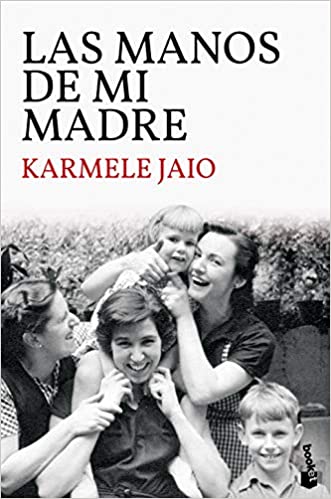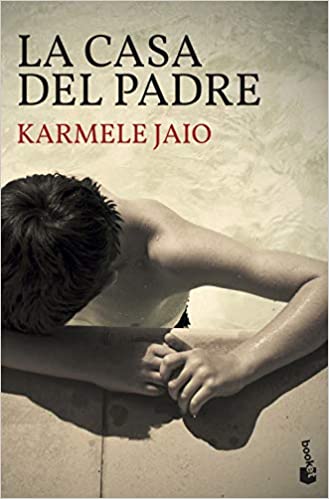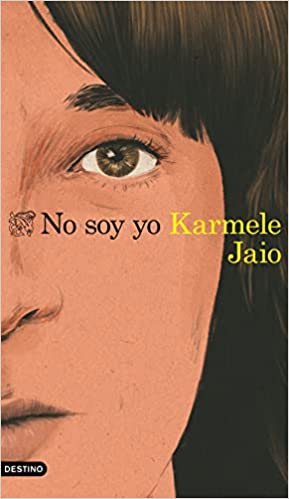Hace falta tener madera de escritora para abordar una narrativa que priorice aspectos emocionales sin caer en la sensiblería. Y Karmele Jaio He enjoys that virtue to address the most empathetic sensibilities in a forceful way, without any kind of fissure that trivializes or makes the narrative squeak.
Y para eso hace falta, además de la ya indicada madera de escritora, disponer del convencimiento, de la necesidad casi visceral de contar algo sin la peor de las censuras, las que uno mismo se impone. Escribir para narrar es dejarse alma, sudor y lágrimas; todo lo demás es un intento vacuo por transmitir algo, o una vanagloria pretenciosa por tener un libro escrito.
How would Bukowski en su curioso poema «Así que quieres ser escritor», ponte a escribir solo si realmente algo te quema y te empuja a hacerlo. Lo demás es perder tu tiempo y seguramente hacérselo perder a los demás. De esa autenticidad es de la que hablo cuando me refiero a una Karmele Jaio que va encontrando esa motivación, ese motor esencial, en cada una de sus historias.
Karmele Jaio's Top 3 Recommended Novels
My mother's hands
There is some ancient memory in touch. And perhaps because we resort to this sense less often than we should, when we focus on that sum of sensations of heat or cold, of smoothness or roughness we receive, we can receive an overload of information. Especially about the passage of time in the hands of a mother ...
Nerea's life hangs by a very fragile thread. The latest blow hits him in a hospital: his mother's memory has been severely damaged and he hardly remembers anything.
Nerea vive absorbida por un trabajo que ya no disfruta, lamenta no poder dedicarle a su hija el tiempo que merece y últimamente siente que su matrimonio palidece. Ahora además arrastra el peso de la culpa por no haber podido detectar a tiempo la crisis que sufre su madre y se ve acorralada por una historia turbulenta del pasado. El precario equilibrio que la sostenía se rompe.
During the long waits at the hospital, he notices that his mother is clinging to a memory that forgetfulness has not been able to sweep away. This is how Nerea will discover a fundamental episode in her mother's life, while she is forced to confront her own past.
Father's house
Ismael is blocked. He has been trying to write his next novel for two years, but he can't produce more than lifeless drafts, and he falls short of the deadlines agreed upon with his publisher. Everything he writes is questioned, something that had never happened to him before. His situation is complicated the day his mother has an accident and Ismael is forced to spend every afternoon with his father to take care of him. Those hours will transport him suddenly to a moment that was frozen in his childhood and that Ismael has kept hidden among his memories until now.
Jasone is the first reader and proofreader of her husband's texts. She has lived dedicated to her family for years, and although she also wrote when she was young, she left him. In the last year he has stayed at night in front of the computer, and in secret he has begun to create again.
Each one will play with their secret in the midst of an emotional tidal wave in which silences, as almost always, will speak louder than the words themselves. Father's house He discovers the writer Karmele Jaio, in a novel that tells us about the ways to build and transmit masculinity and the enormous influence of gender in the lives of women and men.
It's not me
La peor de las alienaciones es esa suerte de despersonalización a la que nos dejamos llevar con inercia del rebaño. El truco era presentar un espejismo como paisaje real de felicidad y autorrealización en lo material que cada uno tiene a su alcance. Y sí, en lo femenino el asunto aún adquiere tintes más esperpénticos. Porque la liberación parece un anuncio de cosméticos.
In this book we enjoy an existentialist feminism, a perspective of the naked woman before herself to draw the soul in the mirror, where each one, be it a woman or a man, is judged, idealized, denigrated or even hurt, mixed of pathetic posed or deliberate Shakespearean soliloquy.
Karmele Jaio, the author of Father's house, presents us in his new book fourteen stories of women. They all belong to the same generation, are between forty and fifty years old, and are going through a critical moment in their lives.
We will discover them in that strangeness in the face of a changing body, anxiety in the face of evident aging, nostalgia for the idealized past and youth, the routine of marital relationships, the urge to take advantage of the time they have left, the feeling of not finding your place ... Those small emotional fractures of great importance in the daily life of any woman.



